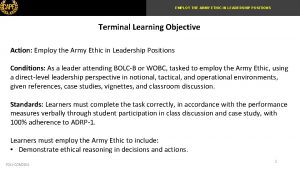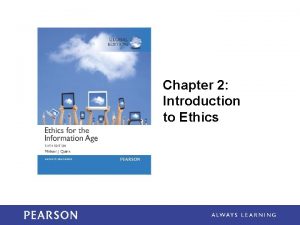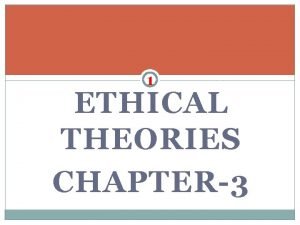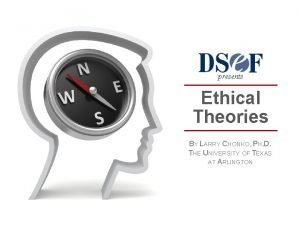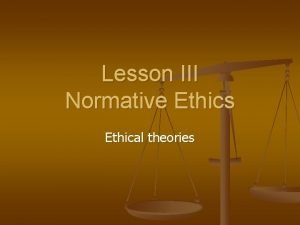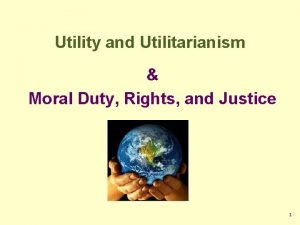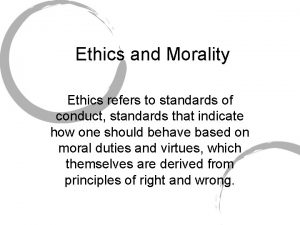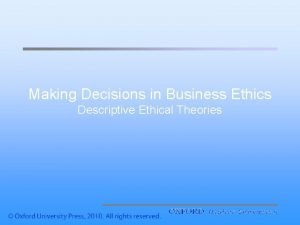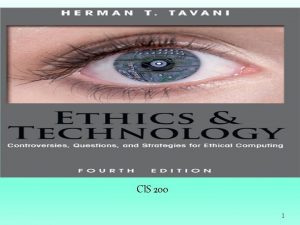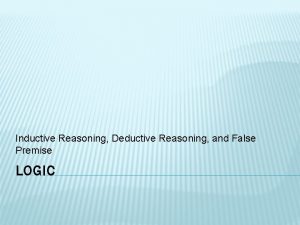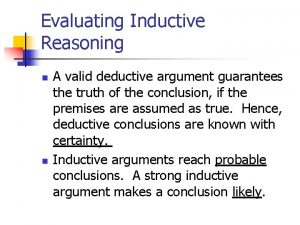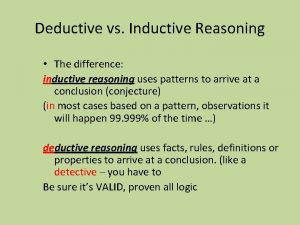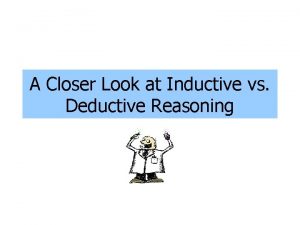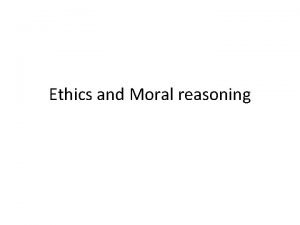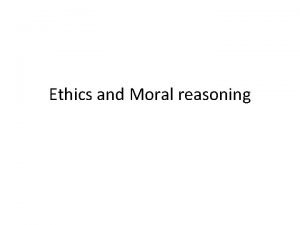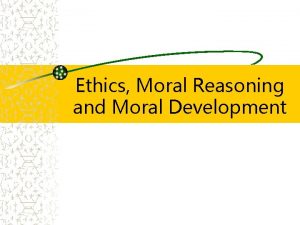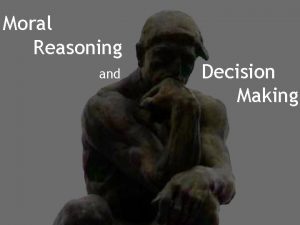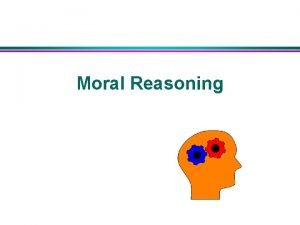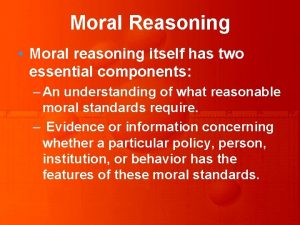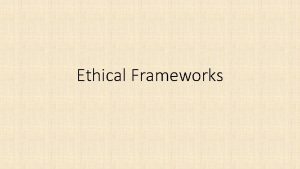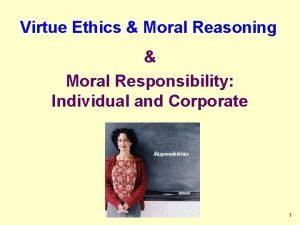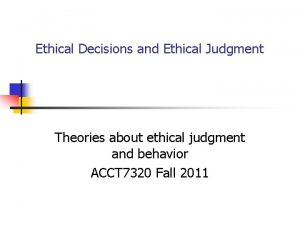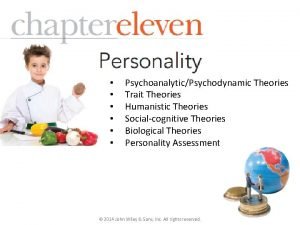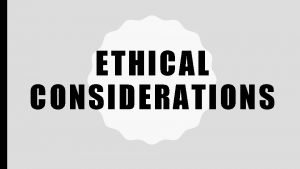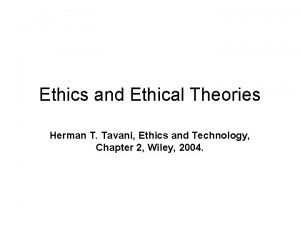Moral Reasoning Ethical Theories What is Ethics The














- Slides: 14

Moral Reasoning & Ethical Theories

What is Ethics? § The field of ethics, also called moral philosophy, involves systematizing, defending, and recommending concepts of right and wrong behavior.

Greek Virtue Ethics § Ethics comes from the Greek Ethos, meaning “character” and Ethike aretai, meaning “skills of character” § They asked “what is a Good Physician? ” § A Physician keeps people alive…ergo…The Hippocratic Oath which adopted a sanctity of life worldview

Morals, Ethics & Law “What’s the Difference? ” § Morals : Personal Sense of Right and Wrong § Ethics: Professional/Social Sense of Right and Wrong § Law: When wrong actions are punished by society

Christian Virtue Ethics § The virtue of Christian Compassion in Medicine emphasized “suffering with the patient” § At this point in time there were two schools of Medicine, naturalistic and religious

Natural Law Theory § “What is…ought to be. ” § Thomas Aquinas in the 11 th century said that a rational god made the world work rationally and gave humans the ability to discover his rationale

Doctrine of Double Effect § If an action has two effects, one good and the other evil, the action is morally permissible § If there was a good intention § If the good happened at exactly the same time as the evil § If only the Good was actually intended § If there was an important enough reason for performing the action and risking the evil outcome

Social Contract Theory § Assumes that people are fundamentally self-interested and that moral rules have evolved for humans to get along with one another.

Kantian Ethics § A right act always treats other humans as end-in-themselves, never as a mere means

Utilitarianism § Right acts produce the greatest amount of good for the greatest number of people § Four Tenets 1. 2. 3. 4. Consequentialism The Maximization Principle A Theory of Value A scope-of-morality premise

Case-Based Reasoning § Also known as Casuistry § Analyzes cases by comparing them to other cases rather than using philosophical principles § Also looks at each case as a unique situation and not a precedent

Pragmatism § Whatever methods has the best outcome is the best way to go

Principles of Biomedical Ethics 1. 2. 3. 4. Autonomy Beneficience Nonmaleficense Justice

Reductio ad absurdum § This latin phrase literally translates as “Reduce to the absurd” § It is a tool of logic used to simplify ethical problems § Ex: If you give one person free healthcare do you have to give everyone free healthcare?
 Army ethical reasoning model
Army ethical reasoning model Workable ethical theories
Workable ethical theories Ethics in healthcare definition
Ethics in healthcare definition 8 ethical theories
8 ethical theories Larry chonko ethical theories
Larry chonko ethical theories Normative theories of business ethics
Normative theories of business ethics Utilitarian theory of rights
Utilitarian theory of rights Ethics refers to
Ethics refers to Ethical theories
Ethical theories Descriptive business ethics theories
Descriptive business ethics theories What are the 4 ethical theories
What are the 4 ethical theories Deductive reasoning
Deductive reasoning Inductive reasoning method
Inductive reasoning method Inductive and deductive reasoning
Inductive and deductive reasoning Every quiz has been easy. therefore, the quiz will be easy
Every quiz has been easy. therefore, the quiz will be easy
